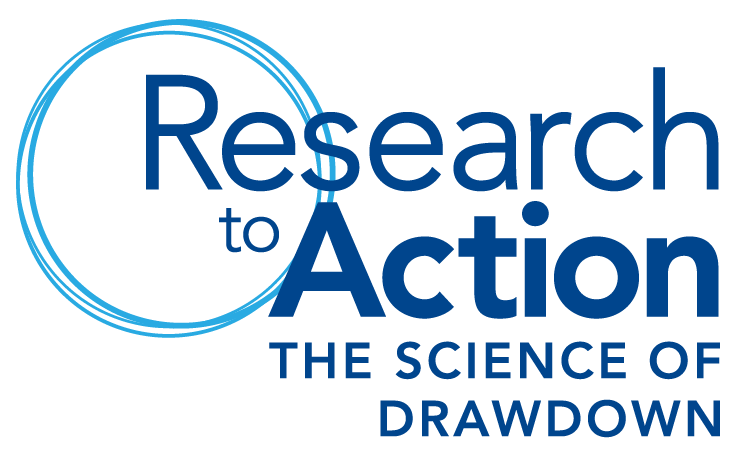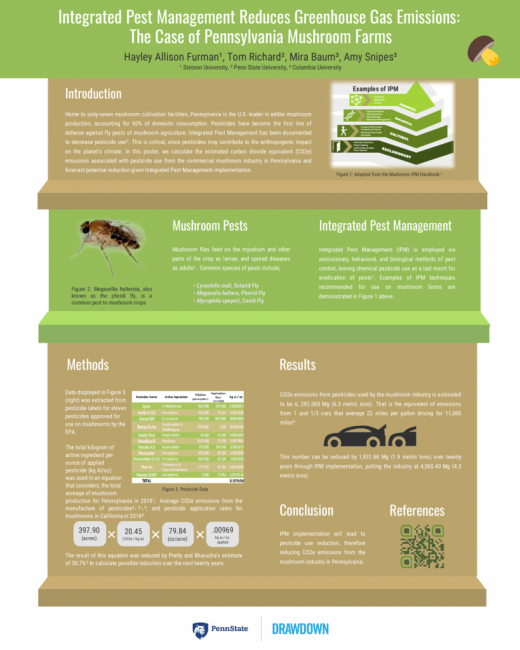Pennsylvania (PA) is the leader of mushroom production in the U.S.; 63% of all mushrooms in the U.S. are produced in PA. Integrated Pest Management (IPM) is heavily implemented on commercial mushroom farms, and is employed via exclusionary, behavioral, and biological methods of pest control, leaving chemical pesticide use as a last resort for eradication of pests. This is critical, since pesticides may contribute to the anthropogenic impact on the planet’s climate. Although IPM is well documented as a tool that can reduce pesticide use in agriculture, the impact of IPM implementation on reduction of greenhouse gas emissions in the mushroom industry is unknown. This study estimates carbon dioxide equivalent emissions (CO2e) from pesticides used in the mushroom industry. We also forecast the potential reduction in CO2e given IPM implementation in commercial mushroom production in PA. CO2e emissions were calculated using estimates from the active ingredient of 11 pesticides approved for use in commercial mushroom production, each pesticide’s dilution rate, and the application rates. IPM implementation on commercial mushroom farms in PA reduce CO2e emissions by 1.9 metric tons from 6.2 metric tons to 4.3 metric tons. The CO2e impact of pesticide use in commercial mushroom farms in PA is substantially lowered through the implementation of IPM.
Day
Monday Poster Session
Related Conference Themes
Food


